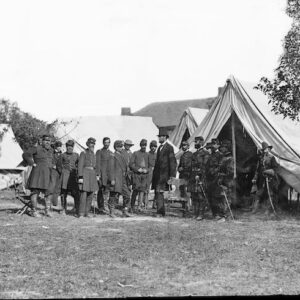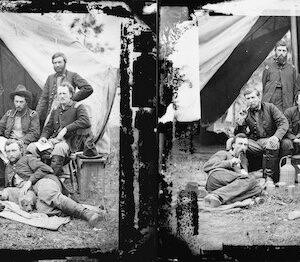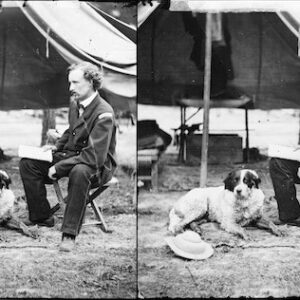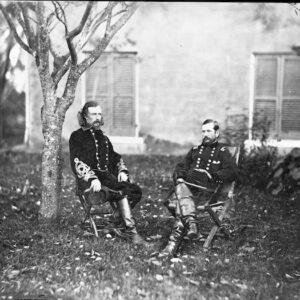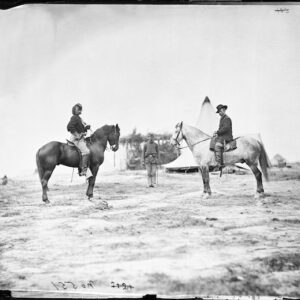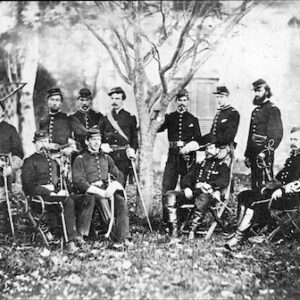Tag: Custer (George A.)
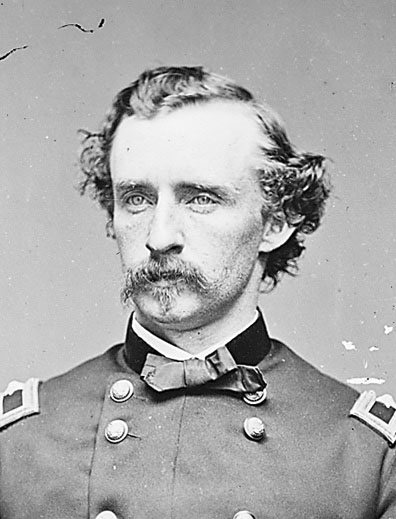 Wikipedia says: George Armstrong Custer (December 5, 1839 – June 25, 1876) was a United States Army officer and cavalry commander in the American Civil War and the American Indian Wars.
Wikipedia says: George Armstrong Custer (December 5, 1839 – June 25, 1876) was a United States Army officer and cavalry commander in the American Civil War and the American Indian Wars.
Custer graduated from West Point in 1861 at the bottom of his class, but as the Civil War was just starting, trained officers were in immediate demand. He worked closely with General George B. McClellan and the future General Alfred Pleasonton, both of whom recognized his qualities as a cavalry leader, and he was brevetted brigadier general of volunteers at age 23. Only a few days after his promotion, he fought at the Battle of Gettysburg, where he commanded the Michigan Cavalry Brigade and despite being outnumbered, defeated J. E. B. Stuart’s attack at what is now known as the East Cavalry Field. In 1864, Custer served in the Overland Campaign and in Philip Sheridan’s army in the Shenandoah Valley, defeating Jubal Early at Cedar Creek. His division blocked the Army of Northern Virginia’s final retreat and received the first flag of truce from the Confederates, and Custer was present at Robert E. Lee’s surrender to Ulysses S. Grant at Appomattox.
After the war, Custer was appointed a lieutenant colonel in the Regular Army and was sent west to fight in the Indian Wars. On June 25, 1876, while leading the 7th Cavalry Regiment at the Battle of the Little Bighorn in Montana Territory against a coalition of Native American tribes, he was killed along with all of the five companies he led after splitting the regiment into three battalions. This action became romanticized as “Custer’s Last Stand”.
His dramatic end was as controversial as the rest of his career, and reaction to his life and career remains deeply divided. Custer’s legend was partly of his own fabrication through his extensive journalism, and perhaps more through the energetic lobbying of his wife Elizabeth Bacon “Libbie” Custer throughout her long widowhood.
Promotions and ranks
Custer’s promotions and ranks including his six brevet [honorary] promotions which were all for gallant and meritorious services at five different battles and one campaign:
Second lieutenant, 2nd Cavalry: June 24, 1861
First lieutenant, 5th Cavalry: July 17, 1862
Captain staff, additional aide-de-camp: June 5, 1862
Brigadier general, U.S. Volunteers: June 29, 1863
Brevet major, July 3, 1863 (Battle of Gettysburg, Pennsylvania)
Captain, 5th Cavalry: May 8, 1864
Brevet lieutenant colonel: May 11, 1864 (Battle of Yellow Tavern – Combat at Meadow)
Brevet colonel: September 19, 1864 (Battle of Winchester, Virginia)
Brevet major general, U.S. Volunteers: October 19, 1864 (Battle of Winchester and Fisher’s Hill, Virginia)
Brevet brigadier general, U.S. Army, March 13, 1865 (Battle of Five Forks, Virginia)
Brevet major general, U.S. Army: March 13, 1865 (The campaign ending in the surrender of the Army of Northern Virginia)
Major general, U.S. Volunteers: April 15, 1865
Mustered out of Volunteer Service: February 1, 1866
Lieutenant colonel, 7th Cavalry: July 28, 1866 (killed at the Battle of the Little Bighorn, June 25, 1876)
